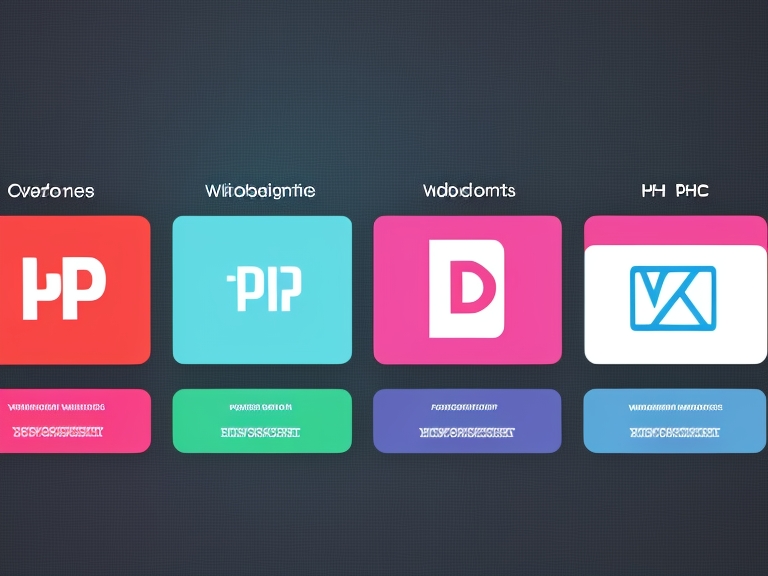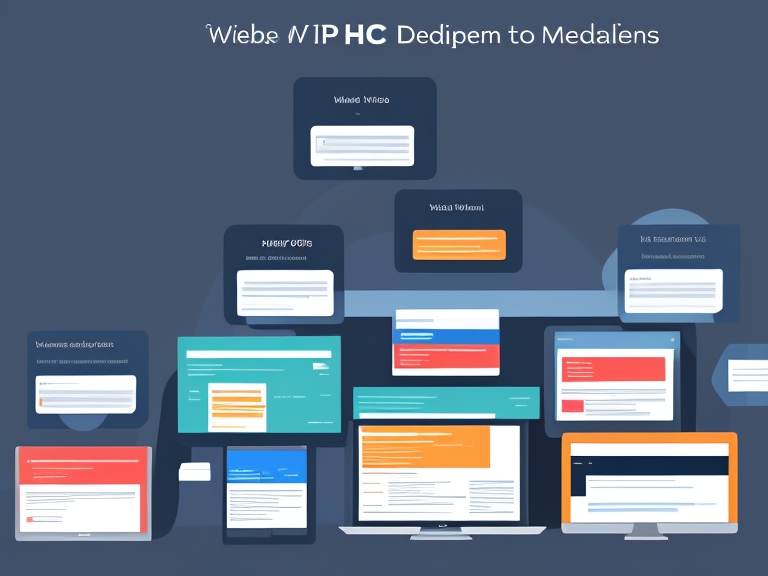PHP is a popular programming language that is widely used for web development. It is an open-source language that is easy to learn and has a large community of developers. However, with the release of new versions of PHP, it can be challenging to choose the right version for your web development needs. In this blog, we will explore the different versions of PHP and help you choose the right one for your project. We will discuss the features and benefits of each version, as well as the compatibility and support issues that you may encounter. Whether you are a beginner or an experienced developer, this blog will provide you with the information you need to make an informed decision about which PHP version to use for your web development needs. So, let’s dive in and explore the world of PHP versions!
Article topics:
- PHP Versions: A Comprehensive Guide to Choosing the Right Version for Your Web Development Needs
- The Pros and Cons of Using Different PHP Versions for Your Web Development Projects
- Upgrading Your PHP Version: Why It’s Important and How to Do It Safely
- PHP 7 vs. PHP 8: Which Version is Right for Your Web Development Needs?
- How to Test Your PHP Version Compatibility and Ensure Your Website Runs Smoothly
- The Future of PHP Versions: What to Expect and How to Prepare for Upcoming Changes

PHP Versions: A Comprehensive Guide to Choosing the Right Version for Your Web Development Needs
PHP is a popular programming language used for web development. With the release of new versions, it can be confusing to choose the right one for your project. This comprehensive guide will help you understand the differences between PHP versions and choose the right one for your web development needs.
PHP versions are released regularly, with each version offering new features and improvements. However, not all versions are compatible with all web hosting providers. It is important to check with your hosting provider to ensure that the PHP version you choose is supported.
When choosing a PHP version, consider the requirements of your project. If you are working on a legacy project, you may need to use an older version of PHP. However, if you are starting a new project, it is recommended to use the latest stable version of PHP.
Another factor to consider is the security of the PHP version. Older versions of PHP may have security vulnerabilities that can be exploited by hackers. It is important to use the latest stable version of PHP to ensure the security of your website.
In conclusion, choosing the right PHP version is crucial for the success of your web development project. Consider the requirements of your project, the compatibility with your hosting provider, and the security of the PHP version. By following these guidelines, you can ensure that your website is secure and up-to-date with the latest features and improvements.
The Pros and Cons of Using Different PHP Versions for Your Web Development Projects
PHP is a popular programming language used for web development. With the release of new PHP versions, developers are often faced with the decision of whether to upgrade or stick with their current version. Each PHP version has its own set of pros and cons that developers should consider before making a decision.
One of the main benefits of using the latest PHP version is improved performance. Newer versions are often optimized for speed and can handle more requests per second. This can lead to faster load times and a better user experience. Additionally, newer versions often have improved security features, which can help protect your website from potential threats.
However, upgrading to a new PHP version can also have its drawbacks. Older code may not be compatible with the latest version, which can lead to compatibility issues and require additional development time. Additionally, some hosting providers may not support the latest PHP version, which can limit your options when it comes to choosing a hosting provider.
Ultimately, the decision to upgrade to a new PHP version should be based on your specific project needs and goals. If performance and security are top priorities, upgrading to the latest version may be the best choice. However, if compatibility and hosting options are more important, sticking with your current version may be the better option.
In conclusion, choosing between different PHP versions can be a difficult decision for developers. While newer versions offer improved performance and security, they may also require additional development time and may not be supported by all hosting providers. Careful consideration of your project needs and goals can help you make the best decision for your web development project.
Upgrading Your PHP Version: Why It’s Important and How to Do It Safely
Upgrading your PHP version is crucial for the security and performance of your website. PHP versions are constantly updated to fix bugs, improve performance, and enhance security. Running an outdated version of PHP can leave your website vulnerable to security threats and slow down its performance.
To upgrade your PHP version safely, it’s important to first check if your website is compatible with the latest version of PHP. You can do this by testing your website on a local server or staging environment before making the switch on your live website. It’s also important to backup your website before upgrading to ensure that you can easily revert back if any issues arise.
Once you’ve confirmed compatibility and backed up your website, you can upgrade your PHP version by contacting your hosting provider or following the instructions provided by your content management system (CMS). It’s important to note that upgrading your PHP version may require updating your website’s plugins and themes to ensure compatibility.
In conclusion, upgrading your PHP version is essential for the security and performance of your website. By taking the necessary precautions and following the proper steps, you can safely upgrade your PHP version and enjoy the benefits of improved security and performance.
PHP 7 vs. PHP 8: Which Version is Right for Your Web Development Needs?

PHP is one of the most popular programming languages for web development. With the release of PHP 8, developers are now faced with the question of whether to stick with PHP 7 or upgrade to the latest version. Both versions have their own advantages and disadvantages, and choosing the right one depends on your specific web development needs.
PHP 7 was released in 2015 and has been widely adopted by developers. It offers significant performance improvements over its predecessor, PHP 5.6. PHP 7 also introduced new features such as scalar type declarations, return type declarations, and anonymous classes. These features make code more readable and easier to maintain.
On the other hand, PHP 8 was released in 2020 and offers even more performance improvements and new features. One of the most significant changes in PHP 8 is the introduction of the JIT (Just-In-Time) compiler. This feature can significantly improve the performance of PHP applications by compiling code at runtime.
When deciding which version of PHP to use, it’s important to consider compatibility with your existing codebase and any third-party libraries or frameworks you may be using. PHP 8 is not fully backward compatible with PHP 7, so upgrading may require some code changes.
In conclusion, both PHP versions have their own strengths and weaknesses. If you’re starting a new project, PHP 8 may be the better choice for its performance improvements and new features. However, if you have an existing codebase that relies on PHP 7, it may be best to stick with that version for now. Ultimately, the decision of which PHP version to use depends on your specific web development needs.
How to Test Your PHP Version Compatibility and Ensure Your Website Runs Smoothly
As a website owner, it’s important to ensure that your website runs smoothly and efficiently. One of the key factors that can affect your website’s performance is the PHP version compatibility. PHP is a programming language that is used to create dynamic websites. Different versions of PHP are released from time to time, and it’s important to ensure that your website is compatible with the latest version.
To test your PHP version compatibility, you can use a tool called PHP Compatibility Checker. This tool scans your website’s code and checks for any compatibility issues with the latest PHP versions. It’s a simple and easy-to-use tool that can help you identify any potential issues that may affect your website’s performance.
Once you have identified any compatibility issues, you can take steps to resolve them. This may involve updating your website’s code to ensure that it’s compatible with the latest PHP versions. You may also need to update any plugins or themes that you are using on your website to ensure that they are compatible with the latest PHP versions.
By ensuring that your website is compatible with the latest PHP versions, you can ensure that it runs smoothly and efficiently. This can help to improve your website’s performance, reduce the risk of downtime, and provide a better user experience for your visitors.
In conclusion, testing your PHP version compatibility is an important step in ensuring that your website runs smoothly and efficiently. By using tools like PHP Compatibility Checker, you can identify any potential issues and take steps to resolve them. This can help to improve your website’s performance and provide a better user experience for your visitors.
The Future of PHP Versions: What to Expect and How to Prepare for Upcoming Changes
As technology continues to evolve, so do programming languages. PHP, one of the most popular programming languages for web development, is no exception. With the release of PHP 8, developers can expect significant changes in the language’s syntax, performance, and security features.
One of the most notable changes in PHP 8 is the introduction of JIT (Just-In-Time) compilation, which promises to improve the language’s performance by up to 3 times. Additionally, PHP 8 includes new features such as union types, named arguments, and attributes, which will make coding more efficient and streamlined.
However, with these changes come potential compatibility issues with older PHP versions. Developers must ensure that their code is compatible with the latest version of PHP to take advantage of its new features and performance improvements.
To prepare for upcoming changes in PHP versions, developers should stay up-to-date with the latest developments in the language and regularly update their code to ensure compatibility. Additionally, developers should consider using tools such as static analysis and automated testing to catch potential issues before they become problems.
In conclusion, the future of PHP versions is bright, with exciting new features and performance improvements on the horizon. However, developers must stay vigilant and proactive in preparing for these changes to ensure that their code remains compatible and optimized for the latest version of PHP.

Conclusion
In conclusion, choosing the right PHP version for your web development needs is crucial for the success of your project. It is important to consider factors such as compatibility with your web hosting provider, support for the latest features and security updates, and the requirements of your specific project. It is also important to keep in mind that PHP versions are constantly evolving, so it is important to stay up-to-date with the latest releases and updates. By taking the time to carefully evaluate your options and choose the right PHP version, you can ensure that your web development project is successful and meets your needs both now and in the future. So, take your time, do your research, and choose wisely!
